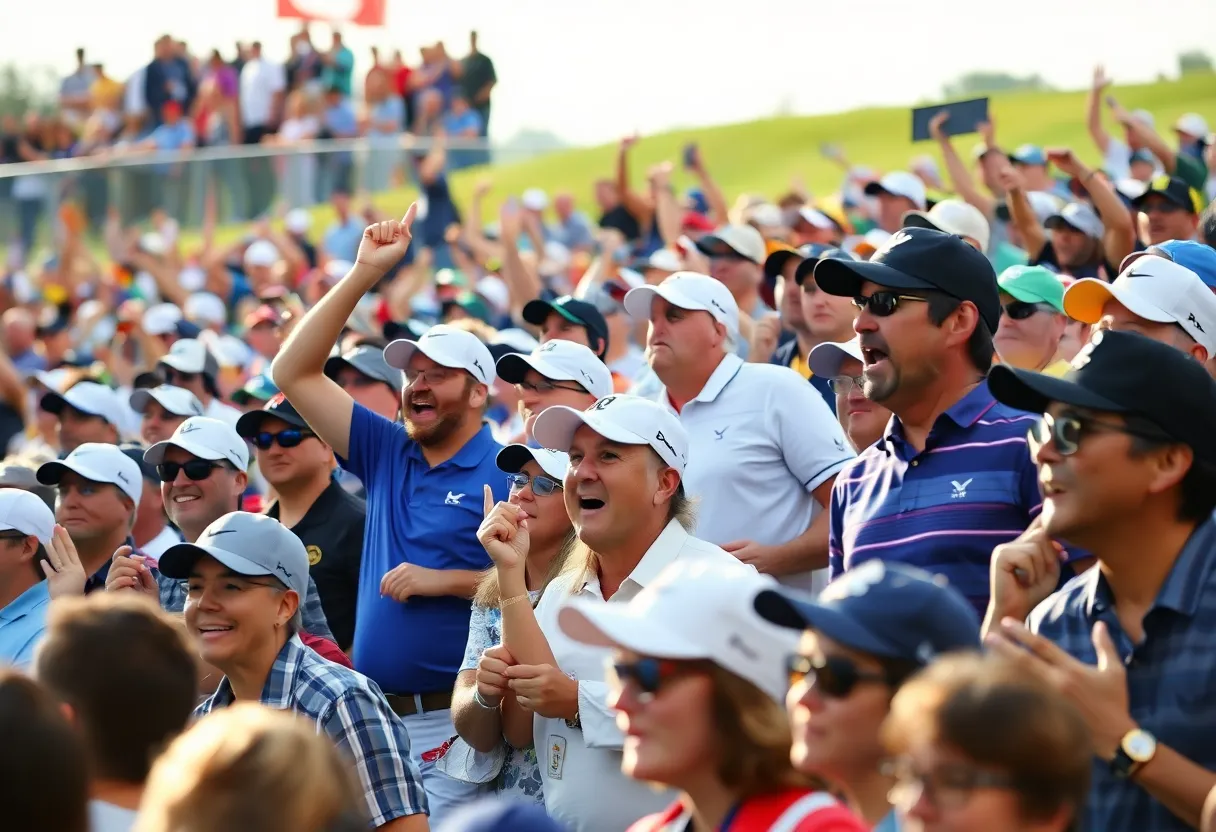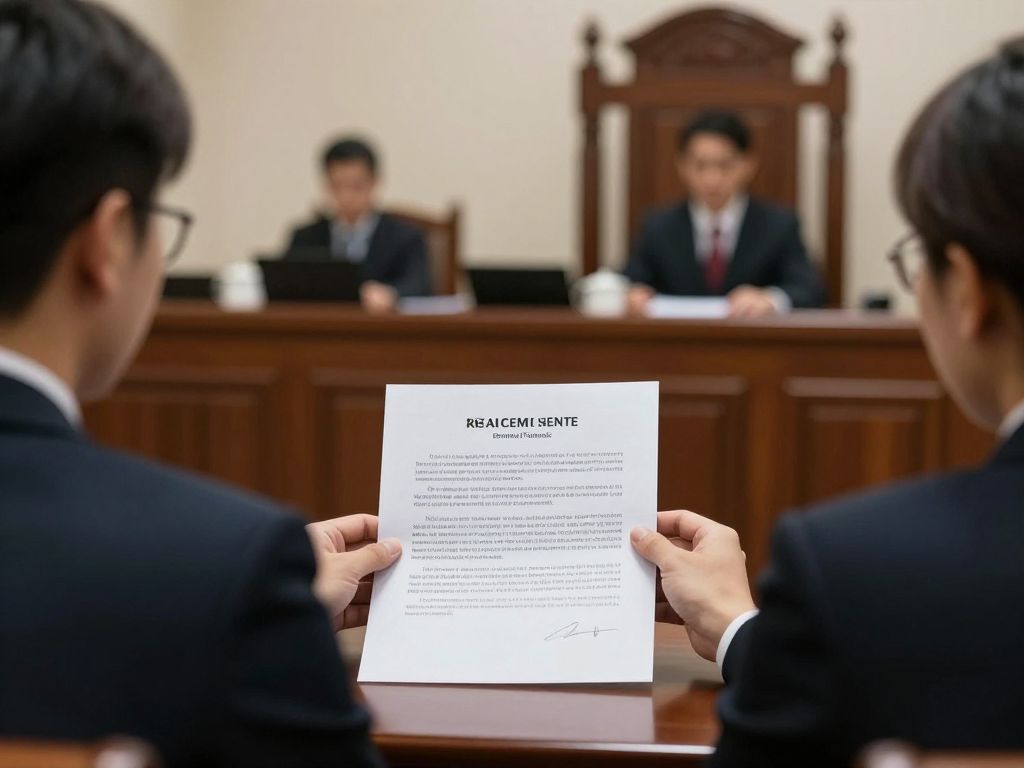Farmingdale, New York, September 29, 2025
News Summary
The Ryder Cup, once a polite competition between American and British golfers, has transformed into a high-stakes event marked by intense rivalry and commercial pressures. The 2023 edition in Farmingdale witnessed aggressive fan behavior, prompting concerns over sportsmanship. As fans become more vocal and confrontational, the PGA of America struggles to maintain order, reflecting on the changing dynamics of this storied competition. Despite the rowdy atmosphere, golfers still deliver exceptional performances on the course.
Farmingdale, New York
Ryder Cup drama: from polite rivalry to full-throated frenzy
The Ryder Cup used to be a buttoned-up transatlantic rivalry with handshakes, cigars and polite clap-and-pass etiquette. But that picture has changed dramatically, and fans who follow golfers closely know exactly how wild things have gotten. The modern spectacle now mixes sport, money and a level of crowd behavior that would have shocked the old guard.
The Ryder Cup was initially a competition between American golfers and those from Great Britain and Ireland. That was the original setup — a tidy, gentlemanly contest across the pond. In 1979, the competition expanded to include the best golfers from all of Europe. That shift turned the match into a far more competitive and continental showdown, raising stakes and fan intensity.
With bigger names, bigger TV deals and bigger sponsor money, the event kept changing. Over the years, the Ryder Cup has evolved into a jingoistic event marked by nationalistic fervor rather than sportsmanship. Fans who used to appreciate the game for its skill now sometimes act like they’re at a different kind of contest. At the same time, The event has become highly profitable for sponsors and broadcasters. That cash changes how the story gets told and who benefits.
Golf has always had a sense of wry humor around it. A famous phrase captures that mood when the game goes sideways: Golf humorously described by Mark Twain and Oscar Wilde as “a good walk spoiled.” And older cultural figures have also been drawn into the sport’s orbit in curious ways. Historical figures like Robert Burns had resonance with golfers, though he did not specifically comment on the game itself.
Money and marketing moved in, and with them came a shift in the narrative. The narrative of the Ryder Cup has been influenced by sponsors, creating a cultural war mentality among audiences. That’s not just speculation — the tone of promos, broadcast emphasis and on-site activation can turn friendly rivalry into country-vs-country theater.
That theater has at times turned ugly. Fan behavior at Ryder Cup events has been criticized, particularly the aggressive American fans. The turning point for many observers is easy to point to. The coarsening of American golf fans was largely attributed to the 1999 Ryder Cup in Brookline, Massachusetts. On that course, In 1999, fans verbally abused European golfer Colin Montgomerie, causing his father to leave the course due to disgust. That episode left a stain on the event’s reputation and signaled a shift toward louder, more confrontational crowds.
And it didn’t stop there. Recent Ryder Cup events have seen a continuation of this boorish fan culture. The 2023 edition provided fresh examples that worried players and officials. At the 2023 Ryder Cup in Farmingdale, New York, American fans heckled Northern Irish golfer Rory McIlroy and poured beer on his wife. Adding insult to injury, An MC at the event incited vulgar chants against McIlroy, highlighting a troubling culture at the event.
Despite all that noise, the golf on the course can still be superb. Despite the hostile environment, McIlroy and his teammate Shane Lowry performed excellently on the course. Europe built a crushing advantage: Europe had a commanding lead going into the final day of matches, needing just three points to win the Cup. The American skipper framed the situation bluntly in public comments, and American captain Keegan Bradley referred to the need for a miraculous comeback after trailing 11½ to 4½ points.
The crowd at Bethpage Black was a character in its own right. The crowd at Bethpage Black was loud and hostile towards European players. When hecklers crossed lines, one player took the mic with his actions: Rory McIlroy addressed hecklers directly, demanding they show him respect while he was playing. And even under duress, Despite the rowdy atmosphere, McIlroy ended the day unbeaten in his four matches.
The scoreboard told a definitive story. The Ryder Cup witnessed a record lead for Europe, with prior sessions ending in the largest discrepancy since the current format was established. On form and momentum, Team Europe had swept all four team sessions on the previous days, marking a significant achievement in Ryder Cup history.
Organizers struggled to keep the peace. The PGA of America added additional security for matches and emphasized spectator etiquette, amid the challenges of maintaining order. The American side struggled to turn things around on the green; The American team struggled to perform, with many players performing below expectations and only achieving a small number of points across sessions. That left Europe in a position to close it out: Team Europe needed three points from the last 12 singles matches to win the Ryder Cup outright.
What this all means for golf fans
For those who love golf, the mix is messy. The Ryder Cup still delivers incredible shots, drama and genuine emotion — but it also shows how commercial pressures and crowd culture can push an event from sporting contest into gladiatorial spectacle. If you’re heading to a future Ryder Cup, expect passion, noise and security checks — and remember that the players still need calm to do the best work.
FAQ
Q: What was the original format of the Ryder Cup?
A: The Ryder Cup was initially a competition between American golfers and those from Great Britain and Ireland.
Q: When did the Ryder Cup expand to include all of Europe?
A: In 1979, the competition expanded to include the best golfers from all of Europe.
Q: How has the tone of the Ryder Cup changed over time?
A: Over the years, the Ryder Cup has evolved into a jingoistic event marked by nationalistic fervor rather than sportsmanship.
Q: Who profits from the Ryder Cup?
A: The event has become highly profitable for sponsors and broadcasters.
Q: Is there a famous saying about golf that captures its frustrations?
A: Golf humorously described by Mark Twain and Oscar Wilde as “a good walk spoiled.”
Q: Did historical figures comment directly on golf?
A: Historical figures like Robert Burns had resonance with golfers, though he did not specifically comment on the game itself.
Q: How have sponsors changed audience perception?
A: The narrative of the Ryder Cup has been influenced by sponsors, creating a cultural war mentality among audiences.
Q: Has fan behavior at the Ryder Cup been criticized?
A: Fan behavior at Ryder Cup events has been criticized, particularly the aggressive American fans.
Q: When did the coarsening of American golf fans get attributed to?
A: The coarsening of American golf fans was largely attributed to the 1999 Ryder Cup in Brookline, Massachusetts.
Q: What happened to Colin Montgomerie at the 1999 Ryder Cup?
A: In 1999, fans verbally abused European golfer Colin Montgomerie, causing his father to leave the course due to disgust.
Q: Has the boorish fan culture continued?
A: Recent Ryder Cup events have seen a continuation of this boorish fan culture.
Q: What incidents occurred at the 2023 Ryder Cup in Farmingdale, New York?
A: At the 2023 Ryder Cup in Farmingdale, New York, American fans heckled Northern Irish golfer Rory McIlroy and poured beer on his wife.
Q: Did any event official contribute to the problem at the 2023 Ryder Cup?
A: An MC at the event incited vulgar chants against McIlroy, highlighting a troubling culture at the event.
Q: How did McIlroy and his teammate perform despite the atmosphere?
A: Despite the hostile environment, McIlroy and his teammate Shane Lowry performed excellently on the course.
Q: What was Europe’s position going into the final day?
A: Europe had a commanding lead going into the final day of matches, needing just three points to win the Cup.
Q: What did the American captain say about the comeback needed?
A: American captain Keegan Bradley referred to the need for a miraculous comeback after trailing 11½ to 4½ points.
Q: How was the crowd described at Bethpage Black?
A: The crowd at Bethpage Black was loud and hostile towards European players.
Q: How did Rory McIlroy respond to hecklers?
A: Rory McIlroy addressed hecklers directly, demanding they show him respect while he was playing.
Q: How did McIlroy finish his matches?
A: Despite the rowdy atmosphere, McIlroy ended the day unbeaten in his four matches.
Q: Did Europe set any records in that Ryder Cup?
A: The Ryder Cup witnessed a record lead for Europe, with prior sessions ending in the largest discrepancy since the current format was established.
Q: How dominant was Team Europe in team sessions?
A: Team Europe had swept all four team sessions on the previous days, marking a significant achievement in Ryder Cup history.
Q: What did the PGA of America do about safety and etiquette?
A: The PGA of America added additional security for matches and emphasized spectator etiquette, amid the challenges of maintaining order.
Q: How did the American team perform overall?
A: The American team struggled to perform, with many players performing below expectations and only achieving a small number of points across sessions.
Q: What did Team Europe need to clinch the Cup?
A: Team Europe needed three points from the last 12 singles matches to win the Ryder Cup outright.
Quick reference table
| Topic | Key fact |
|---|---|
| Original format | The Ryder Cup was initially a competition between American golfers and those from Great Britain and Ireland. |
| Expansion | In 1979, the competition expanded to include the best golfers from all of Europe. |
| Recent controversy | At the 2023 Ryder Cup in Farmingdale, New York, American fans heckled Northern Irish golfer Rory McIlroy and poured beer on his wife. |
| Security response | The PGA of America added additional security for matches and emphasized spectator etiquette, amid the challenges of maintaining order. |
| Final-day situation | Team Europe needed three points from the last 12 singles matches to win the Ryder Cup outright. |
Deeper Dive: News & Info About This Topic
HERE Resources
Europe Dominates Ryder Cup with Impressive Victory
Postseason Golf Action Heating Up in Springfield
Fury at Bethpage Black: Ryder Cup Disrupted by Fans
Europe Triumphs Over the U.S. in Ryder Cup at Bethpage Black
Disturbing Fan Behavior at Ryder Cup Hits Competitive Spirit
Ryder Cup Drama Unfolds at Bethpage Black
Ryder Cup Drama Heats Up at Bethpage Black
Europe Dominates Day 2 at the Ryder Cup
Europe Dominates Opening Day of Ryder Cup, Takes Lead Over U.S.
Trump Threatens Relocation of World Cup Matches from Boston
Additional Resources
- Boston Globe: Ryder Cup Keegan Bradley Miracle
- Wikipedia: Ryder Cup
- Boston 25 News: Ryder Cup European
- Google Search: Ryder Cup
- Boston Globe: Ryder Cup Battle
- Google Scholar: Ryder Cup
- Boston Globe: Golf Ryder Cup Day 3
- Encyclopedia Britannica: Ryder Cup
- Boston 25 News: Europe Takes Record
- Google News: Ryder Cup
Author: STAFF HERE BOSTON WRITER
The BOSTON STAFF WRITER represents the experienced team at HEREBoston.com, your go-to source for actionable local news and information in Boston, Suffolk County, and beyond. Specializing in "news you can use," we cover essential topics like product reviews for personal and business needs, local business directories, politics, real estate trends, neighborhood insights, and state news affecting the area—with deep expertise drawn from years of dedicated reporting and strong community input, including local press releases and business updates. We deliver top reporting on high-value events such as Boston Marathon, Head of the Charles Regatta, and Boston Harborfest. Our coverage extends to key organizations like the Greater Boston Chamber of Commerce and Associated Industries of Massachusetts, plus leading businesses in finance, biotech, and insurance that power the local economy such as Fidelity Investments, Biogen, and Liberty Mutual Insurance. As part of the broader HERE network, we provide comprehensive, credible insights into Massachusetts's dynamic landscape.




